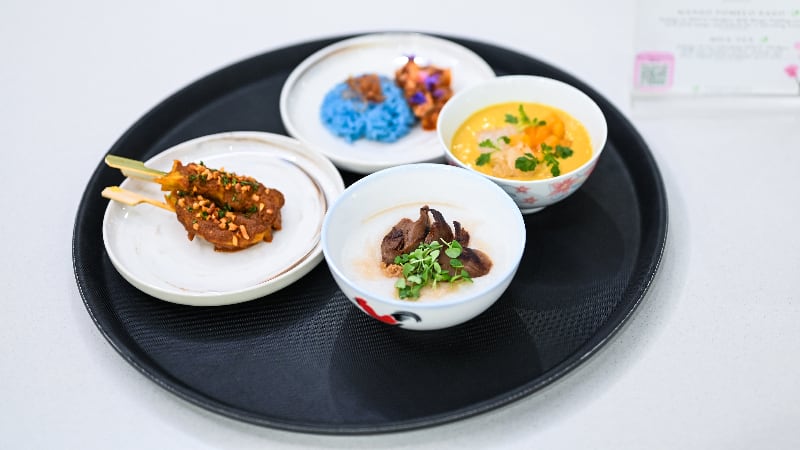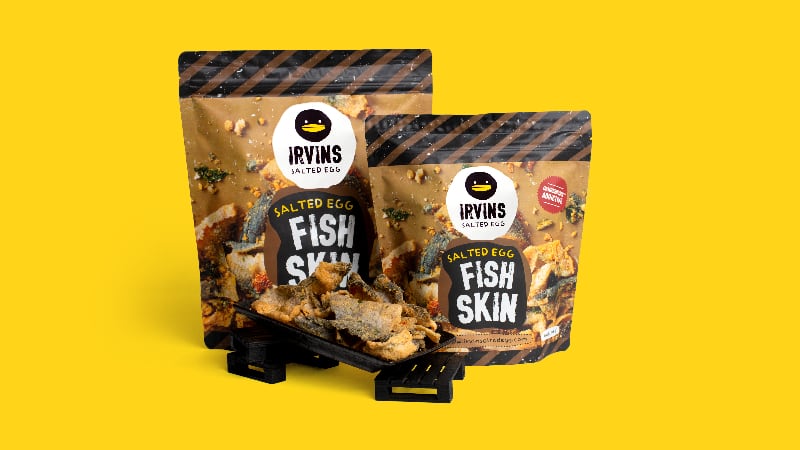Nurasa, owned by Singaporean state-owned investment firm Temasek, was founded in 2021 to transform food systems in becoming more environmentally friendly, accessible and innovative, and to strengthen food security and boost sustainable nutrition development in Singapore and across Asia.
Its latest 3,840sqm facility named Food Tech Innovation Centre (FTIC) was inaugurated on April 24, and will serve as a hub for pioneering product development and commercialisation of consumer-centric innovations, such as low-sugar, cholesterol-free, and gut-friendly foods.
The FTIC is equipped with high-tech laboratories that tap into capabilities in precision fermentation and food processing of Nurasa’s partners, including A*STAR and ScaleUp Bio.
In particular, the precision fermentation lab houses bioreactors with production capacities of up to 100 litres, allowing companies to produce at a scale beyond the development stage.
“Food innovation is complex. The product needs to taste good and be affordable, while innovation requires capital investment and handling competition alongside increasing costs. To improve returns, the innovator needs to act faster and quicker.
“Furthermore, start-ups need like-minded supporters to have their technology and products tested before commercialisation. Nurasa is working with up-and-coming food tech companies, industry partners and joint ventures to collectively cultivate a food tech ecosystem across the value chain,” Guo Xiuling, Chief Executive Officer at Nurasa, told FoodNavigator-Asia.
Besides start-ups, large corporations are a key component of this ecosystem.
“We have a membership programme, through which we do co-innovation and commercialisation with large corporations. Some of them are very keen to see how they can leverage our platform to incubate their innovations — for example, collaborating with start-ups within Nurasa’s system.
“This will in turn help the start-ups to accelerate their go-to-market process, and also enable wider market access. These big players are important partners, and we hope to see more of them joining us.”
At the same time, big firms face their own set of challenges when it comes to sustainable innovation.
“The large corporations need to improve their current innovation system, or introduce a new system or technology. However, they may experience challenges in carrying out disruptive innovation in-house. More and more companies are now looking for external partnership.
“Nurasa is strategically located at an innovation hub in Singapore, where there are many regional headquarters. We are dedicated to addressing the needs of both start-ups and large companies.”
Continuous collaboration
The accessibility to early-stage fundings, research companies and laboratories has made Singapore an environment that appeals to many food tech start-ups.
However, Guo shared that these start-ups tend to leave Singapore for a “more mature acceleration environment” in order to proceed to the next phase of development.
“Singapore is unique for being small but highly efficient, with a very transparent public-private system. So, we want to leverage these advantages to make the country an attractive place for investors, start-ups and large corporations.
“Nurasa’s investment seeks to ensure the start-ups grow and stay here until they really need to go to a much larger scale. That would make our ecosystem more productive and robust.”
Nurasa’s membership programme allows for successful start-ups to continue being attached to its system even after moving their operations out of the facility.
For instance, these firms can use the labs to fuel new innovations, which would help them grow bigger over time.
“Start-ups today are all working on solutions that have much lesser environmental impact via food processing technologies, and conscious utilisation of water, energy and resources. When they are able to produce at a larger scale and lower costs, they could influence consumer demand to switch from traditional foods to more sustainable options.
“Our long-term goal is to be recognised as a global leader in sustainable nutrition. In the more-tangible near term, we hope to see more start-ups graduating from here and entering the commercial phase, large corporations generating more successful results through our partnership, and more investments being pumped into Singaporean innovations.”
Rekindling the sizzle for plant-based

Health and wellness, sustainability, and plant-based ingredients are key consumer trends that Nurasa have observed in the food sector.
“The heightened awareness of sustainability, especially among the younger generation, has an increasing impact on purchasing decisions and how people want to consume food.
“Although consumer acceptance for plant-based foods in the last few years has created headwinds for both investors and innovators, this category will continue to be a trend not just as alternative proteins, but as ingredients that have multiple functions through advanced technologies, such as precision fermentation, to raise the nutrition level of foods.”
Nevertheless, Guo admitted that there is still “a lot of room” for improvement in terms of the taste and texture of plant-based products.
“We need to push further to make a plant-based diet a much more pleasant experience for consumers. But we do see the technology continuing to evolve. There are innovations in the lipids side to make plant-based proteins more satisfying for the palate.
“The increasing inclusion of plant-based ingredients in Asian cuisines means that it’s no longer about the complete transition from a meat-based diet to a plant-base one. Rather, it suggests that people are more receptive to having plant-based or sustainably produced ingredients as part of their diet, as well as the greater availability of these ingredients.”
Guo believes that with the efforts of the entire ecosystem, there would be more sustainable, better-tasting, and affordable options in the market within the next few years.
“For instance, by incorporating plant-based meat into local dishes like satay, the taste is good because of the flavours and spices, so consumer acceptance shouldn’t be a problem at all. We just need to create products in a so-called more plant-forward way.”
Healthier Product Innovation and Emerging Tech will be key topics of focus at Growth Asia Summit 2024 – join us in Singapore to learn about market opportunities and glean insights from major industry experts. Find out more here.





